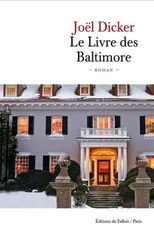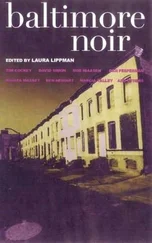Owen Wister - Lady Baltimore
Здесь есть возможность читать онлайн «Owen Wister - Lady Baltimore» весь текст электронной книги совершенно бесплатно (целиком полную версию без сокращений). В некоторых случаях можно слушать аудио, скачать через торрент в формате fb2 и присутствует краткое содержание. Жанр: Вестерн, на английском языке. Описание произведения, (предисловие) а так же отзывы посетителей доступны на портале библиотеки ЛибКат.
- Название:Lady Baltimore
- Автор:
- Жанр:
- Год:неизвестен
- ISBN:нет данных
- Рейтинг книги:5 / 5. Голосов: 1
-
Избранное:Добавить в избранное
- Отзывы:
-
Ваша оценка:
- 100
- 1
- 2
- 3
- 4
- 5
Lady Baltimore: краткое содержание, описание и аннотация
Предлагаем к чтению аннотацию, описание, краткое содержание или предисловие (зависит от того, что написал сам автор книги «Lady Baltimore»). Если вы не нашли необходимую информацию о книге — напишите в комментариях, мы постараемся отыскать её.
Lady Baltimore — читать онлайн бесплатно полную книгу (весь текст) целиком
Ниже представлен текст книги, разбитый по страницам. Система сохранения места последней прочитанной страницы, позволяет с удобством читать онлайн бесплатно книгу «Lady Baltimore», без необходимости каждый раз заново искать на чём Вы остановились. Поставьте закладку, и сможете в любой момент перейти на страницу, на которой закончили чтение.
Интервал:
Закладка:
But what was this interesting girl coming to see for herself?
This little hole in my knowledge gave me discomfort as I walked along toward the antiquity shop where I was to buy the other kettle-supporter. The ladies, with all their freedom of comment and censure, had kept something from me. I reviewed, I pieced together, their various remarks, those oracles, especially, which they had let fall, but it all came back to the same thing. I did not know, and they did, what Hortense Rieppe was coming to see for herself. At all events, the engagement was not broken, the chance to be instrumental in having it broken was still mine; I might still save John Mayrant from his deplorable quixotism; and as this reflection grew with me I took increasing comfort in it, and I stepped onward toward my kettle-supporter, filled with that sense of moral well-being which will steal over even the humblest of us when we feel that we are beneficently minding somebody else's business.
Whenever the arrangement did not take me too widely from my course, I so mapped out my walks and errands in Kings Port that I might pass by the churchyard and church at the corner of Court and Worship streets. Even if I did not indulge myself by turning in to stroll and loiter among the flowers, it was enough pleasure to walk by that brick-wall. If you are willing to wander curiously in our old towns, you may still find in many of them good brick walls standing undisturbed, and equal in their color and simple excellence to those of Kings Port; but fashion has pushed these others out of its sight, among back streets and all sorts of forgotten purlieus and abandoned dignity, and takes its walks to-day amid cold, expensive ugliness; while the old brick walls of Kings Port continually frame your steps with charm. No one workman famous for his skill built them so well proportioned, so true to comeliness; it was the general hand of their age that could shape nothing wrong, as the hand of to-day can shape nothing right, save by a rigid following of the old.
I gave myself the pleasure this afternoon of walking by the churchyard wall; and when I reached the iron gate, there was Daddy Ben. So full was I of my thoughts concerning John Mayrant, and the vicissitudes of his heart, and the Custom House, that I was moved to have words with the old man upon the general topic.
"Well," I said, "and so Mr. John is going to be married."
No attempt to start a chat ever failed more signally. He assented with a manner of mingled civility and reserve that was perfection, and after the two syllables of which his answer consisted, he remained as impenetrably respectful as before. I felt rather high and dry, but I tried it again —
"And I'm sure, Daddy Ben, that you feel as sorry as any of the family that the phosphates failed."
Again he replied with his two syllables of assent, and again he stood mute, respectful, a little bent with his great age; but now his good manners — and better manners were never seen — impelled him to break silence upon some subject, since he would not permit himself to speak concerning the one which I had introduced. It was the phosphates which inspired him.
"Dey is mighty fine prostrate wukks heah, sah."
"Yes, I've been told so, Daddy Ben."
"On dis side up de ribber an' tudder side down de ribber 'cross de new bridge. Wuth visitin' fo' strangers, sah."
I now felt entirely high and dry. I had attempted to enter into conversation with him about the intimate affairs of a family to which he felt that he belonged; and with perfect tact he had not only declined to discuss them with me, but had delicately informed me that I was a stranger and as such had better visit the phosphate works among the other sights of Kings Port. No diplomat could have done it better; and as I walled away from him I knew that he regarded me as an outsider, a Northerner, belonging to a race hostile to his people; he had seen Mas' John friendly with me, but that was Mas' John's affair. And so it was that if the ladies had kept something from me, this cunning, old, polite, coal-black African had kept everything from me.
If all the negroes in Kings Port were like Daddy Ben, Mrs. Gregory St. Michael would not have spoken of having them "to deal with," and the girl behind the counter would not have been thrown into such indignation when she alluded to their conceit and ignorance. Daddy Ben had, so far from being puffed up by the appointment in the Custom House, disapproved of this. I had heard enough about the difference between the old and new generations of the negro of Kings Port to believe it to be true, and I had come to discern how evidently it lay at the bottom of many things here: John Mayrant and his kind were a band united by a number of strong ties, but by nothing so much as by their hatred of the modern negro in their town. Yes, I was obliged to believe that the young Kings Port African left to freedom and the ballot, was a worse African than his slave parents; but this afternoon brought me a taste of it more pungent than all the assurances in the world.
I bought my kettle-supporter, and learned from the robber who sold it to me (Kings Port prices for "old things" are the most exorbitant that I know anywhere) that a carpenter lived not far from Mrs. Trevise's boarding-house, and that he would make for me the box in which I could pack my various purchases.
"That is, if he's working this week," added the robber.
"What else would he be doing?"
"It may be his week for getting drunk on what he earned the week before." And upon this he announced with as much bitterness as if he had been John Mayrant or any of his aunts, "That's what Boston philanthropy has done for him."
I dared up at this. "I suppose that's a Southern argument for reestablishing slavery."
"I am not Southern; Breslau is my native town, and I came from New York here to live five years ago. I've seen what your emancipation has done for the black, and I say to you, my friend, honest I don't know a fool from a philanthropist any longer."
He had much right upon his side; and it can be seen daily that philanthropy does not always walk hand-in-hand with wisdom. Does anything or anybody always walk so? Moreover, I am a friend to not many superlatives, and have perceived no saying to be more true than the one that extremes meet: they meet indeed, and folly is their meeting-place. Nor could I say in the case of the negro which folly were the more ridiculous;—that which expects a race which has lived no one knows how many thousand years in mental nakedness while Confucius, Moses, and Napoleon were flowering upon adjacent human stems, should put on suddenly the white man's intelligence, or that other folly which declares we can do nothing for the African, as if Hampton had not already wrought excellent things for him. I had no mind to enter into all the inextricable error with this Teuton, and it was he who continued —
"Oh, these Boston philanthropists; oh, these know-it-alls! Why don't they stay home? Why do they come down here to worry us with their ignorance? See here, my friend, let me show you!"
He rushed about his shop in a search of distraught eagerness, and with a multitude of small exclamations, until, screeching jubilantly once, he pounced upon a shabby and learned-looking volume. This he brought me, thrusting it with his trembling fingers between my own, and shuffling the open pages. But when the apparently right one was found, he exclaimed, "No, I have better! and dashed away to a pile of pamphlets on the floor, where he began to plough and harrow. Wondering if I was closeted with a maniac, I looked at the book in my passive hand, and saw diagrams of various bones to me unknown, and men's names of which I was equally ignorant — Mivart, Topinard, and more, — but at last that of Huxley. But this agreeable sight was spoiled at once by the quite horrible words Nycticebidoe, platyrrhine, catarrhine, from which I raised my eyes to see him coming at me with two pamphlets, and scolding as he came.
Читать дальшеИнтервал:
Закладка:
Похожие книги на «Lady Baltimore»
Представляем Вашему вниманию похожие книги на «Lady Baltimore» списком для выбора. Мы отобрали схожую по названию и смыслу литературу в надежде предоставить читателям больше вариантов отыскать новые, интересные, ещё непрочитанные произведения.
Обсуждение, отзывы о книге «Lady Baltimore» и просто собственные мнения читателей. Оставьте ваши комментарии, напишите, что Вы думаете о произведении, его смысле или главных героях. Укажите что конкретно понравилось, а что нет, и почему Вы так считаете.










